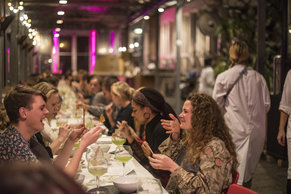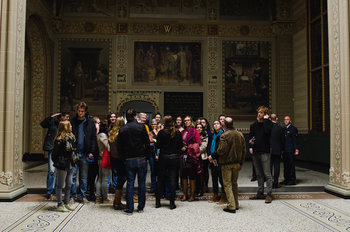|
| |
John Spacey, November 20, 2018 updated on January 29, 2022
Culture shock is the feeling of being lost, challenged and stimulated with complete immersion in an unfamiliar culture. This is most strongly associated with international travel and immigration but can be triggered by other experiences and lifestyle changes such as a change in socioeconomic surroundings. Culture shock is viewed as a potentially enjoyable or positive thing that can be stressful but likely to build character, life experience and resilience. The following are illustrative examples of culture shock.
Inflated Expectations | Loss of Cues | Disorientation | Language Barrier | Information Overload | Norms | Dietary Changes | Provisioning Challenges | Honeymoon Period | Social Rejection | Social Acceptance | Descent into Hostility | Perspective Switch | Identity Crisis | Cultivation of Grit | Defeat of Assumptions | Host Stereotyping | Adjustment & Adaptation | Assimilation | Retreat | Cosmopolitanism | New Perspectives | Host Dependency | Homesickness | Romanticizing of Home | Romanticizing of New Culture | Reverse Culture Shock | Wonder |
Culture
This is the complete list of articles we have written about culture.
If you enjoyed this page, please consider bookmarking Simplicable.
© 2010-2023 Simplicable. All Rights Reserved. Reproduction of materials found on this site, in any form, without explicit permission is prohibited.
View credits & copyrights or citation information for this page.
|



































